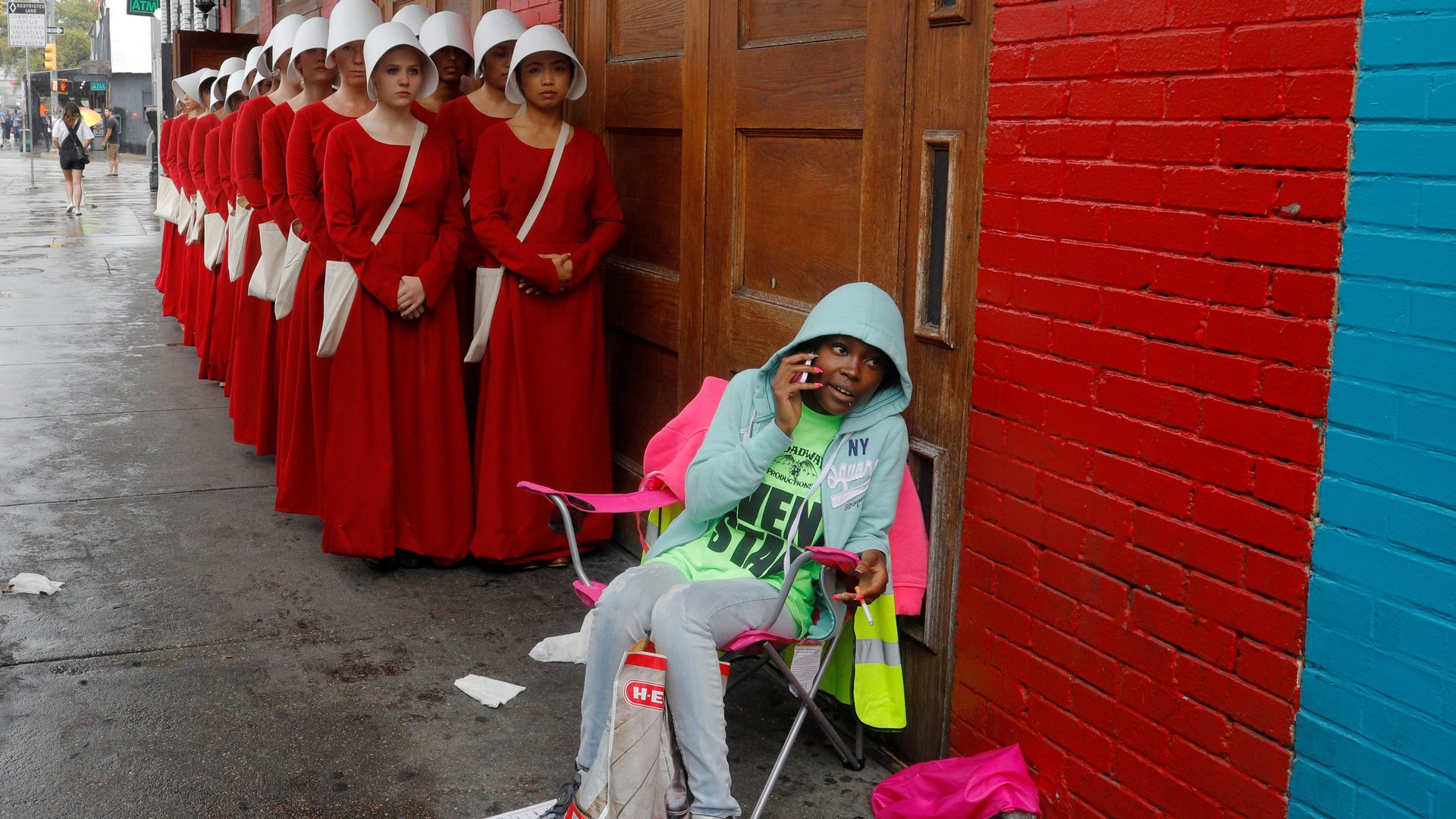It takes only five years to go from today’s world to a horrifying dystopia—in “The Handmaid’s Tale”
This story contains spoilers to the book and TV adaptation for The Handmaid’s Tale.


This story contains spoilers to the book and TV adaptation for The Handmaid’s Tale.
Hulu’s newest show will have women clutching their bellies—not from laughing, but from imagined pain.
The Handmaid’s Tale, an adaptation of the beloved 1986 dystopian novel by Canadian author Margaret Atwood, comes out today. It stars Elisabeth Moss as Offred, a “handmaid”—someone whose sole purpose is to get pregnant for rich couples in a world in which most women are infertile.
It shows a modern democracy upended, and it is dark. The most farfetched aspect of the show is also its most disturbing: It takes just under five years for society to move from one Americans recognize, with iPhones, Tinder, and bikinis, to a religious-fundamentalist one in which the government is repressively authoritarian, and certain classes of women are prohibited from reading and writing.
After a military coup sets the country on its newfound religious course, the women chosen to be handmaids are accelerated into their new society through reeducation schools. There, nuns called ”Aunts” quite literally strike fear into them through grotesque lessons on who’s to blame in acts of gang rape (the woman, obviously).
In a scene that resonates with today’s US administration, an Aunt seems to address how fast what once would have seemed shocking becomes normalized. “‘Ordinary’ is just what you’re used to,” she says. “This may not seem ordinary to you right now, but after a time, it will. This will become ordinary.” The message is clear: Don’t take progress for granted.
One of the ways a society oppresses its people quickly is through language. So the handmaids are also given a new vocabulary. They learn to quash the metaphors (“this is your stop”), the slang (“that sucks”), the brands of modern life (“fucking Uber”). The language of their new world is stiff, rote, antiquated, and God-centric. “Blessed be the fruit,” is the common greeting, which elicits the answer, “may the Lord open.” The expected farewell, “Under his eye.” Any expressions of positivity are met with, “Praise be.” When Offred meets the man whose children she’s assigned to bear, he says, ”Nice to meet you.” She struggles with how to answer, and her eventual response—”You, too”—is obviously taboo, causing a ripple of discomfort across the room.
The handmaids are most clearly stripped of their linguistic power through their names. They are renamed as appendages of the men they serve, by the formula ”Of + [name]”: Ofglen, Offred.
The show, perhaps even more so than the book—which was set in the 1980s but didn’t rely heavily on contemporary brand names—argues that by limiting language, you can rob a society of its identity in just a few short years. But its counterargument also rings loudly: It’s through language that people resist.
The old ways stay alive in the furtive whispers between bonnets, and in the dry, modern sarcasm of the voiceover, read by Moss. At the end of the first episode Offred internally reaffirms her daughter’s name, husband’s name, and finally, her own. In doing so she asserts that through her choice of words she intends to survive.